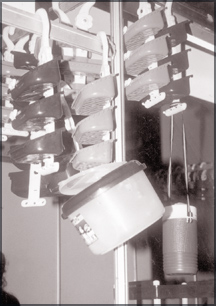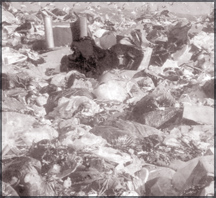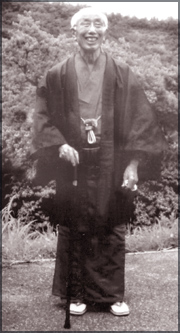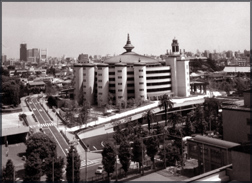|
dailynews |
|
|
|
|
|
OTHER LINKS |

|

|

|
|
Don’t do
even a slight wrong Rethinking plasticPLASTIC: Did you go shopping this week? If so, chances are you brought home some plastic. This simple fact has become so commonplace that most of us do not even notice it. But the consequences are enormous. Eliminating plastic from your life may be one of the most important acts in your mindfulness practice. Why? Five problems with plasticIt's not biodegradable
Our biological and cultural memory tells us that everything returns to dust, and from dust life is born again. Plastic polymers, though, are complex structures, rigid and impervious to the biological processes of decay. With the possible exception of one or two compounds, no plastic product can be digested by any creature on Earth. Whatever plastic we make will remain forever, whether in its original shape or in tiny pieces. In 2005, the annual production rate of plastic in the US reached 50 million tons. Where will it go? It's not recyclableAn estimated 3.5 per cent of plastic waste gets recycled. Due to its many forms and their chemical constituents, plastic is hard to recycle. And 'down-cycling' is a more accurate term. When a plastic bottle, for example, is reprocessed, it is made into another type of article, such as a polar fleece jacket. That fleece, though, cannot recycle. The lint from jacket, and eventually the worn-out garment, goes into the air, the water, and the landfill. It's choking the oceanIn the 1990s, researchers found 317,000 pieces of plastic per square kilometre of ocean surface. In 2001, they found 1 million pieces. In parts of the Central Pacific, plastic now outweighs zoo-plankton by a factor of six to one. This debris comes primarily from land-based sources. It's killing wildlife
Over 100,000 marine animals and 1 million seabirds die from plastic ingestion or entanglement each year. 'Ghost fishing,' the entrapment of fish and crustaceans by abandoned traps and fishing gear, adds to the toll. It's toxicMany types of plastic are associated with increased incidence of cancer, asthma, and other disorders. Plasticizing agents such as phthalate and bisphenol-A are associated with hormone disorders, including precocious female puberty, malformation of male sex organs, and diabetes. Responding with awarenessThe first step in spiritually engaged activism is awareness of our connectedness with all of life. While meditation develops a fundamental, nonverbal sense of oneness with the world, we need to cultivate a discriminative awareness as well, to see cause-and-effect connections between acts of living and the health of the world. From this kind of awareness, mindful action naturally arises. This means changing personal habits; refusing plastic bags at the checkout, buying bread wrapped in paper, taking our own mug or bottle to the smoothie store, repairing electronic equipment rather than throwing it out, and so on. We begin with awareness, and move into the world by embodying the change that we would like to see. But there is a third, vital step; education. The essence of engaged Buddhism is to respond to suffering with compassion and loving kindness. Knowing our inter-dependence with the makers and distributors of harmful products and packaging, we approach them with loving attention. As the Dalai Lama reminds us, everyone wants to be happy, and everyone wants to avoid suffering. No one wants to see the ocean fill up with plastic; no one wants to see hormonal disruptions in their children. The Gauthama Buddha was a great teacher, alleviating the suffering of many through his wise words and shining example. Using the tool of education, we, too, can help to alleviate the suffering of millions by bringing an end to the plague of plastics. Stuart Moody serves on the advisory board of Green Sangha, an affiliate of the Buddhist Peace Fellowship. To learn more about Green Sangha, visit www.greensangha.org Inter Faith Peace Seminar in Colombo: Birth centennial of Rissho Kosei-kai founderRISSHO Kosei-kai is a lay Buddhist Society in Japan with 6.5 million members in Japan and 17 other countries including Sri Lanka. Its founder Rev. Nikkyo Niwano was a principal participant in the World Peace Foundation. His birth centennial falls this year.
To mark Rev. Nikkyo Niwano's birth centennial Rissho Kosei-kai of Sri Lanka will hold an Inter Faith Peace Seminar on December 03 in Colombo. Rev. Hiroshi Niwano, one of the founder's sons will grace the occasion where several religious leaders and prominent lay persons will participate among other many distinguished guests. Nikkyo Niwano was born in 1906 to a farm family in Nigata Prefecture, in northern Japan. As a child he was deeply impressed by his grandfather's and parent's kindness to others. Their good example instilled in him a love of peace and harmony and service to others. Several years after leaving school, he went to Tokyo to work and there began studying and practising various spiritual disciplines. Eventually, in one of the new religious organisations, he heard a series of lectures on the Lotus Sutra given by Mr. Sukenobu Arai. In 1938, together with Mrs. Myoko Naganuma, Nikkyo Niwano founded a lay Buddhist organization-Rissho Kosei-kai to help free people from suffering and to assist in establishing a peaceful world through the teachings of the Lotus Sutra. Believing that all religions spring from the same source, Founder Niwano, met people of religions the world over in order to further the cause of world peace through interreligious cooperation. He dedicated himself to the establishment of the World Conference on Religion and Peace (WCRP) and the Asian Conference on Religion and Peace (ACRP). In 1994 he attended the sixth assembly of the WCRP in Italy and presided at its opening session with Pope John Paul II in the Vatican's Synod Hall. Further, in the past three United Nations special sessions for disarmament, he called for world political leaders to take steps for the abolition of nuclear weapons. As a WCRP representative, Founder Niwano addressed the first Special Session of the United Nations General Assembly Devoted to Disarmament (SSD I) in 1978.
He urged the leaders of superpowers to work for general and complete disarmament, saying, "Instead of taking risks with arms, please take major risks for peace and disarmament." In 1979 he was awarded the Templeton Foundation Prize for Progress in Religion. In 1992 he was made Knight Commander with the Silver Star of the Order of St. Gregory the Great by the Vatican. In 1993 he received the Interfaith Medallion from the International Council of Christians and Jews. He passed away on October 4, 1999, at the age of 92. On October 1, 2000, as one of the undertakings dedicated to the memory of the founder, the Precious Stupa of the One Vehicle was constructed in the garden of the Horin-kaku Guest Hall at Rissho Kosei-kai headquarters in Tokyo. The stupa was named after the founder's posthumous Dharma title, "The Founder Nikkyo, Great Teacher of the One Vehicle." His published writings in English include Buddhism for Today: A Modern Interpretation of the Threefold Lotus Sutra, A Buddhist Approach to Peace, Lifetime Beginner, Shakymuni Buddha: A Narrative Biography and invisible Eyelashes. Two kinds of freedomFREEDOM: There are two kinds of freedom to be found in our world: the freedom of desires and the freedom from desires. Two highly attained Thai monks had been invited to a lay supporter's home to take thier morning meal. In the reception room where they were waiting, there was a decorative fish tank stocked with many species. The junior of the monks complained that it was contrary to the Buddhist principle of compassion to keep fish in an aquarium.What had the fish done to deserve being incarcerated in a glass-walled jail? They should be free to swim in the rivers and lakes, going wherever they pleased. The second monk disagreed. It was true, he conceded, that those fish were not free to follow their desires, but living in a fish tank gave them freedom from so many dangers. Then he listed their freedoms: 1. Have you ever seen a fisherman drop a line into the aquarium in someone's house? No! So the first freedom for a fish in a tank is freedom from the danger of fishermen. Imagine what it must be like for a fish in the wild. When they see a succulent worm or a juicy fat fly, they can never be sure whether it is safe to eat or not. They have, no doubt, seen many of their friends and relations tuck into a delicious-looking worm, and then suddenly disappear upwards out of their life forever. For a fish in the wild, eating is fraught with danger and often ends in tragedy. Dinner is traumatic. All fish must suffer chronic indigestion due to anxiety complexes over every meal, and the paranoid ones would surely starve to death. Fish in the wild are probably psychotic. But fish in a tank are free from this danger. 2. Fish in the wild also have to worry about bigger fish eating them. In some decadent rivers these days, it is no longer safe to go up a dark creek at night! However, no owner would place fish in their tank that are given to eating one another. So fish in a tank are free from the danger of cannibal fish. 3. In the cycles of nature, fish in the wild sometimes go without food. But for fish in a tank, it must be like living next door to a restaurant. So fish in a tank are also free from the danger of hunger. 4. As the seasons change, rivers and lakes are subject to temperature extremes. They get so cold in winter they may be covered with ice. In summer, they may be too warm for fish, sometimes even drying up. But the fish in a tank have the equivalent of reverse-cycle air-conditioning. The water temperature in the tank is kept constant and comfortable throughout the day and all year. So fish in a tank are free from the danger of heat and cold. 5. In the wild, when fish get ill, there is no one to treat them. But fish in a tank have free medical insurance. Their owner will bring a fish doctor on a house call whenever there's an ailment; they don't even need to go to a clinic. So fish in a tank are free from the danger of no health coverage. The second monk, the elder of the two, summed up his position. There are many advantages to being a fish in an aquarium, he said. True, they are not free to follow their desires and swim here and there, but they are free from so many dangers and discomforts. The elder monk went on to explain that it is the same with people who live a virtuous life. True, they are not free to follow their desires and indulge here and there, but they are free from so many dangers and discomforts. Which type of freedom would you like? |












